Core Team & Fellows

Shahzeb Mahmood specializes in internet and technology laws. His research examines online content regulation, artificial intelligence and deepfakes. He is an associate at a top-tier full-service law firm in Bangladesh. He advises several multinational telecom and technology businesses, including FAANG companies, on legal, regulatory and policy matters. He also regularly advises clients on cross-border investments in the fintech, healthcare and telecommunication sectors. Shahzeb is a barrister of the Honorable Society of Lincoln’s Inn and a civil-commercial mediator accredited by the ADR-ODR International UK. He is currently pursuing a Master’s degree at the University of New South Wales.
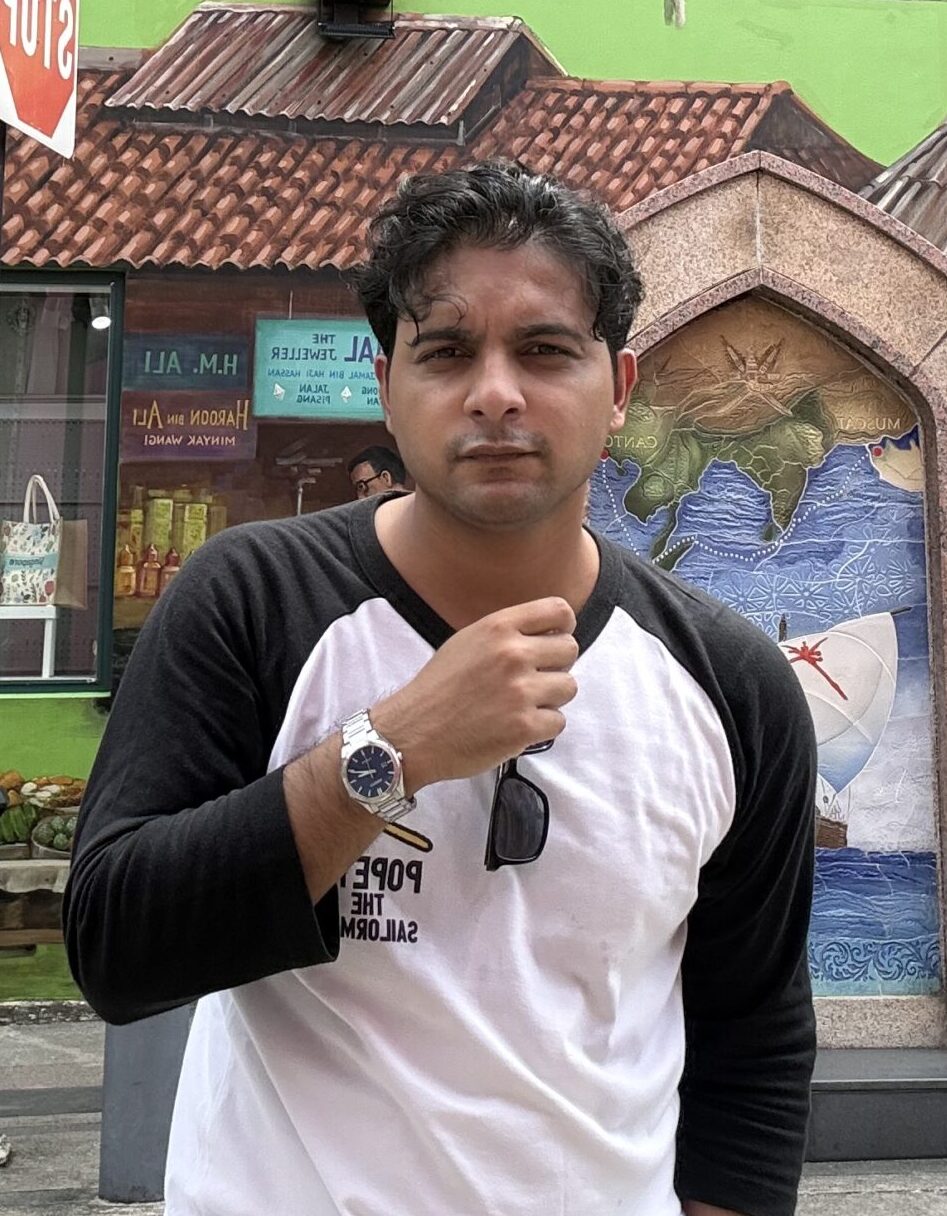
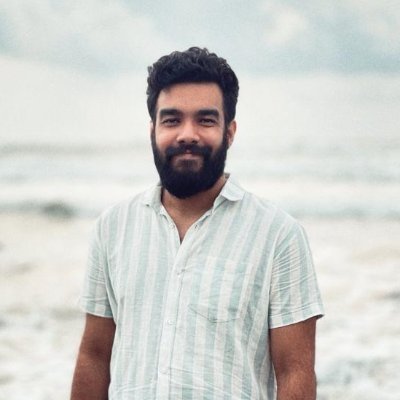
Zarif Faiaz is a journalist, writer, and communications expert, currently serving as the In-Charge of the Tech & Startup section at The Daily Star newspaper in Bangladesh. Zarif's work explores the intersection of technology, policy, human rights, and society, shedding light on critical issues such as data privacy, digital rights, and the impact of emerging technologies on traditional industries. Zarif has worked on development communication projects with BRAC, the EU, Swisscontact, and WorldFish.
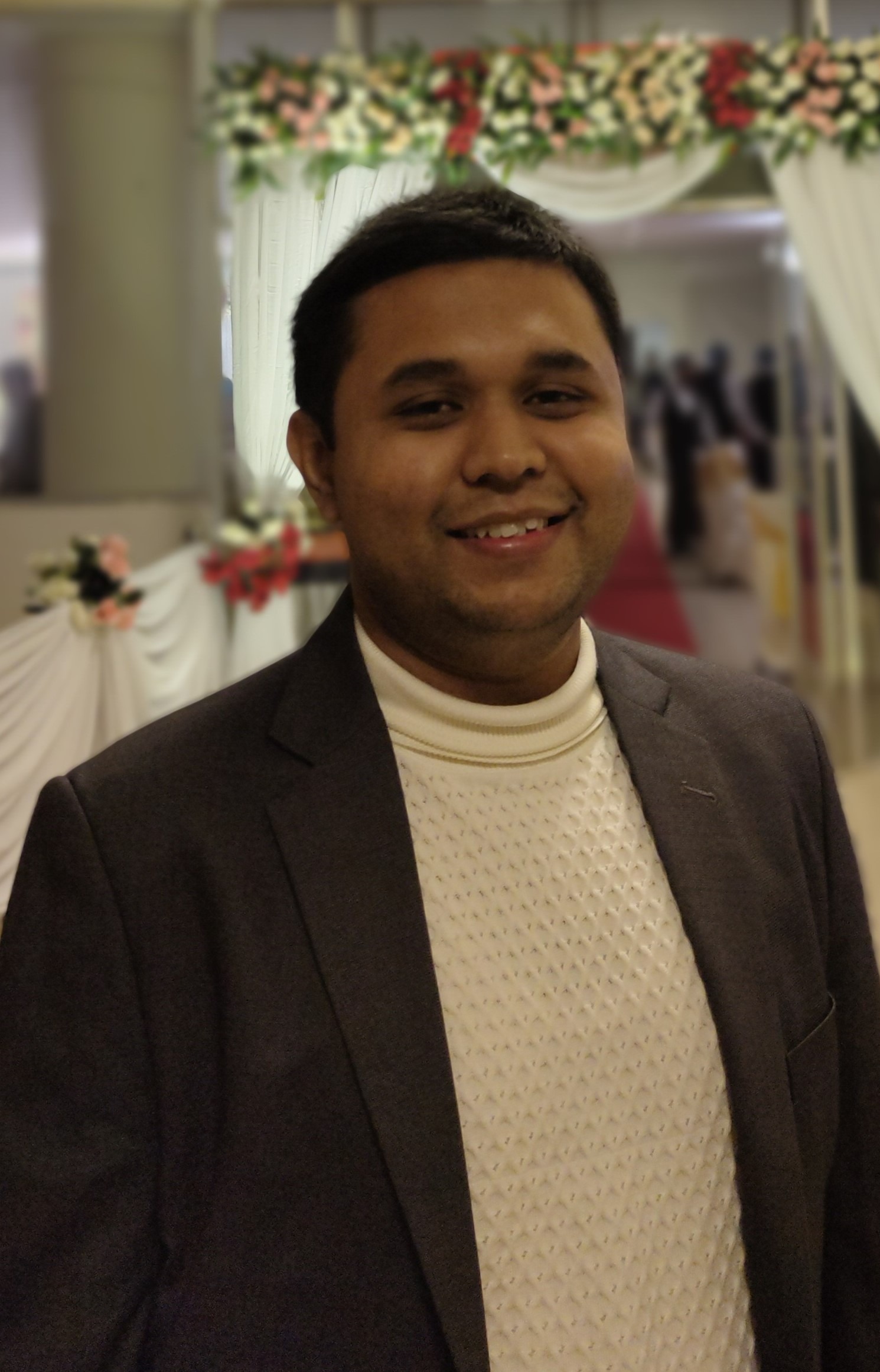
Shekh Mohammad Arafat has been a fact-checker since 2022. Throughout this period, he has developed interests in media and information literacy, fact-checking training, and disinformation research. Arafat completed his Bachelor of Social Science from the Department of Media Studies and Journalism at the University of Liberal Arts Bangladesh (ULAB).
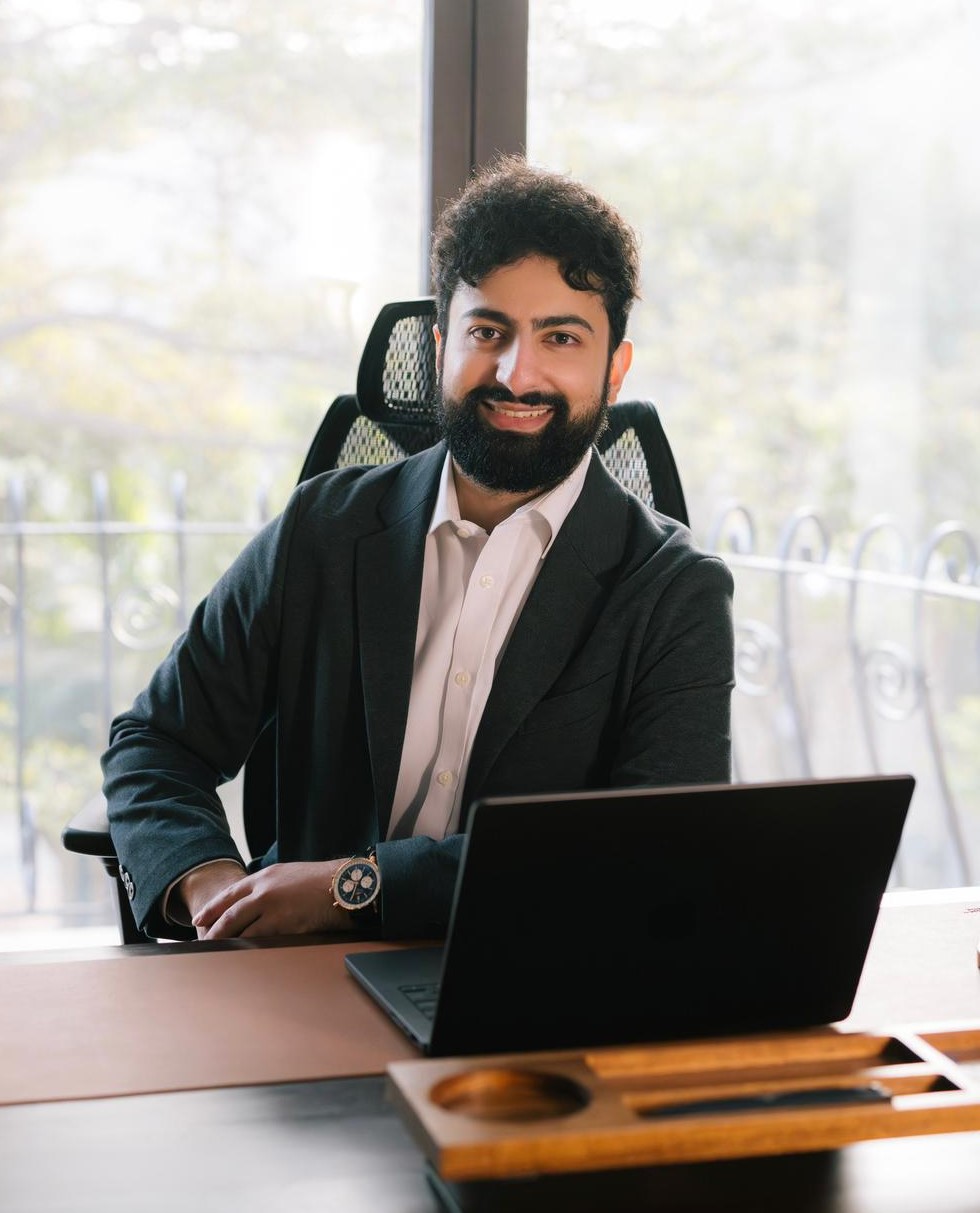
Hassan Abdullah Niazi is a partner at Common Law Chambers (CLC) in Pakistan. His practice concerns constitutional law, anti-trust & competition, data protection & privacy, Internet & technology regulation, among others. Hassan has more than a decade of diverse legal experience in litigation and legal advice, has represented clients in major disputes before the High Courts, and has assisted senior advocates before the Supreme Court of Pakistan. Hassan was previously the Lead Legal Counsel for the South and Central Asia region for Meta Platforms Inc. based in Singapore.
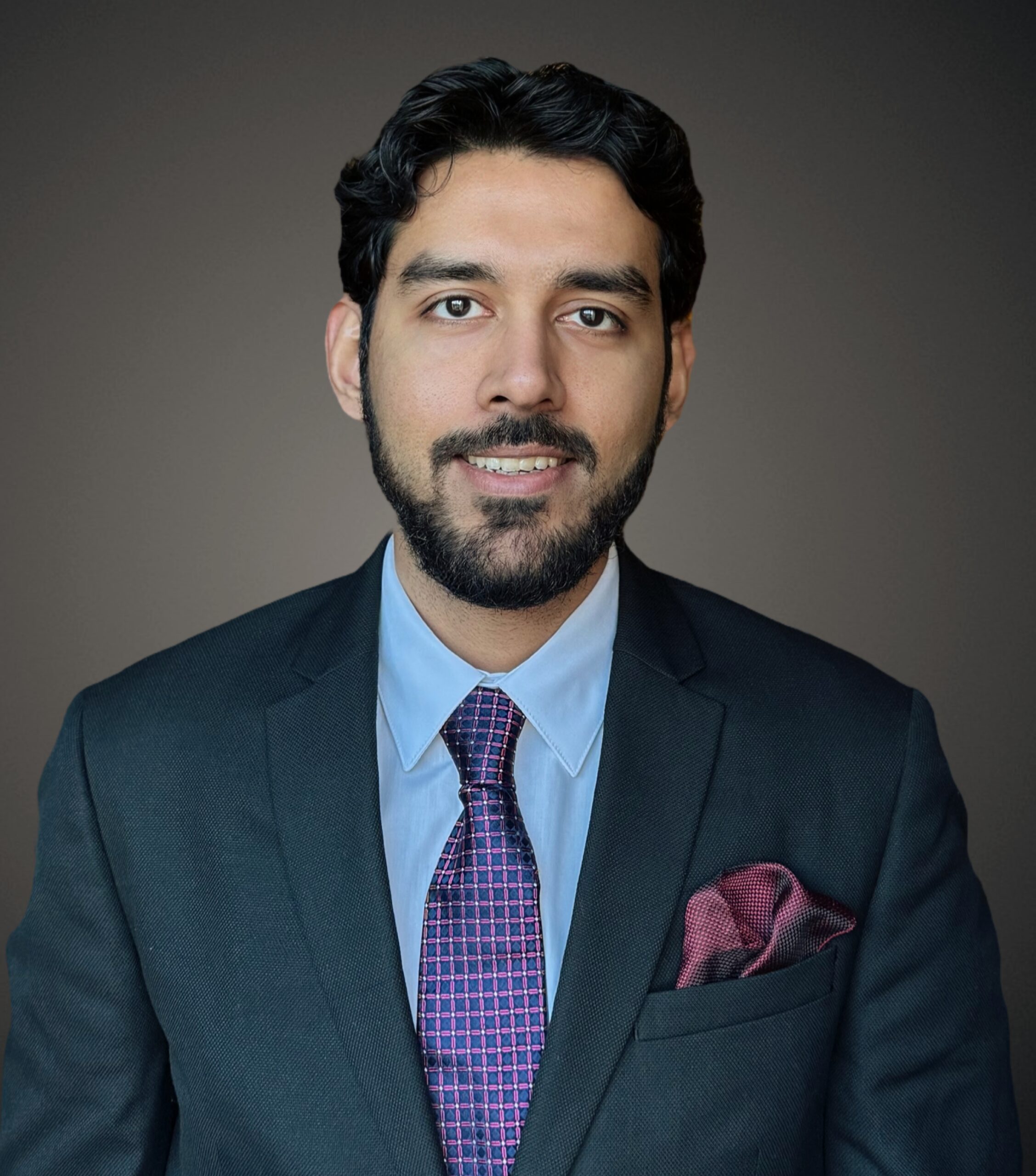
Taqbir Huda is a Clarendon Scholar at the University of Oxford pursuing the DPhil In Law, with a focus on the right to reparation under international law. He previously served as a researcher at Amnesty International, investigating state violations of human rights in over 50 cases in Bangladesh. Over the past decade, he has led research and advocacy for several NGOs, such as BRAC and the Bangladesh Legal Aid and Services Trust, and helped draft more than ten public interest petitions before the Supreme Court of Bangladesh, including one that led to reform of the Evidence Act 1872 for violating the right to equality. Taqbir graduated top of his class in law from SOAS, University of London, and then obtained an MSc in Criminology with distinction from Oxford and an LLM from Harvard Law School.

Prateek Waghre is a technologist-turned-public policy researcher. He is presently a fellow with Tech Policy Press (2025). He was the Executive Director at the Internet Freedom Foundation (IFF), a digital rights organization in India, until 2024. He has also been a technology policy researcher at The Takshashila Institution, and spent nearly a decade in the CDN (content delivery networks) industry in product management and solutions engineering roles before turning to public policy research and digital rights advocacy. He is an alumnus of the 'International Visitor Leadership Program' (IVLP) representing India for a program on combatting and identifying disinformation. Prateek is deeply interested in how technologies and their deployment affect liberal democratic societies and spaces. His research interests include digital rights (privacy, surveillance, free expression) and the state of the information ecosystem.
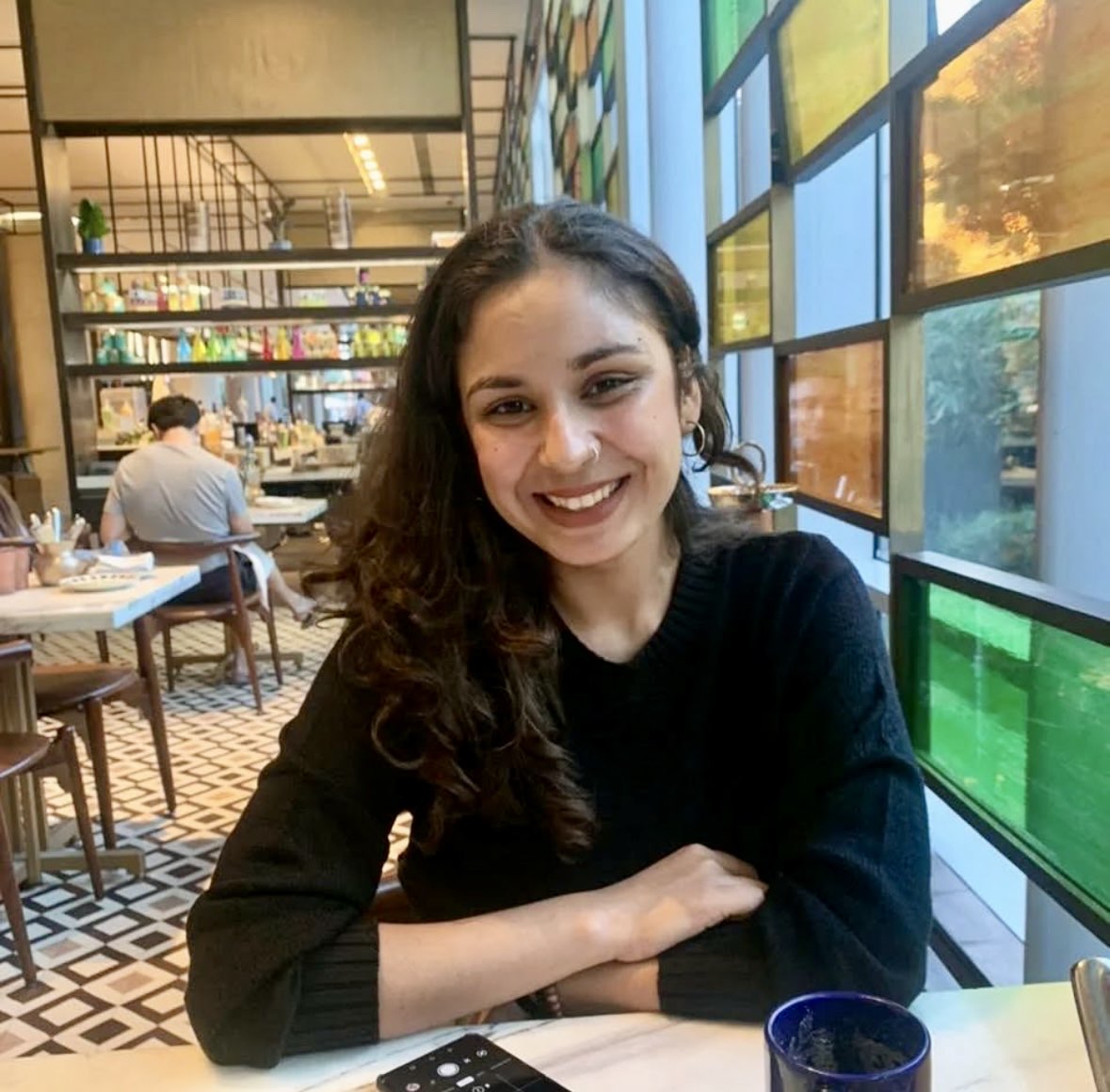
Disha Verma is a technology and human rights researcher with roots in rights advocacy across themes of community health, access to medicine, gender, surveillance, data privacy, and social security. A lawyer by training, Disha spent a few years working in domestic and global health policymaking before transitioning to technology research. She previously worked with the Internet Freedom Foundation in India, primarily engaging with State deployment of technologies through a critical and rights-affirming lens.
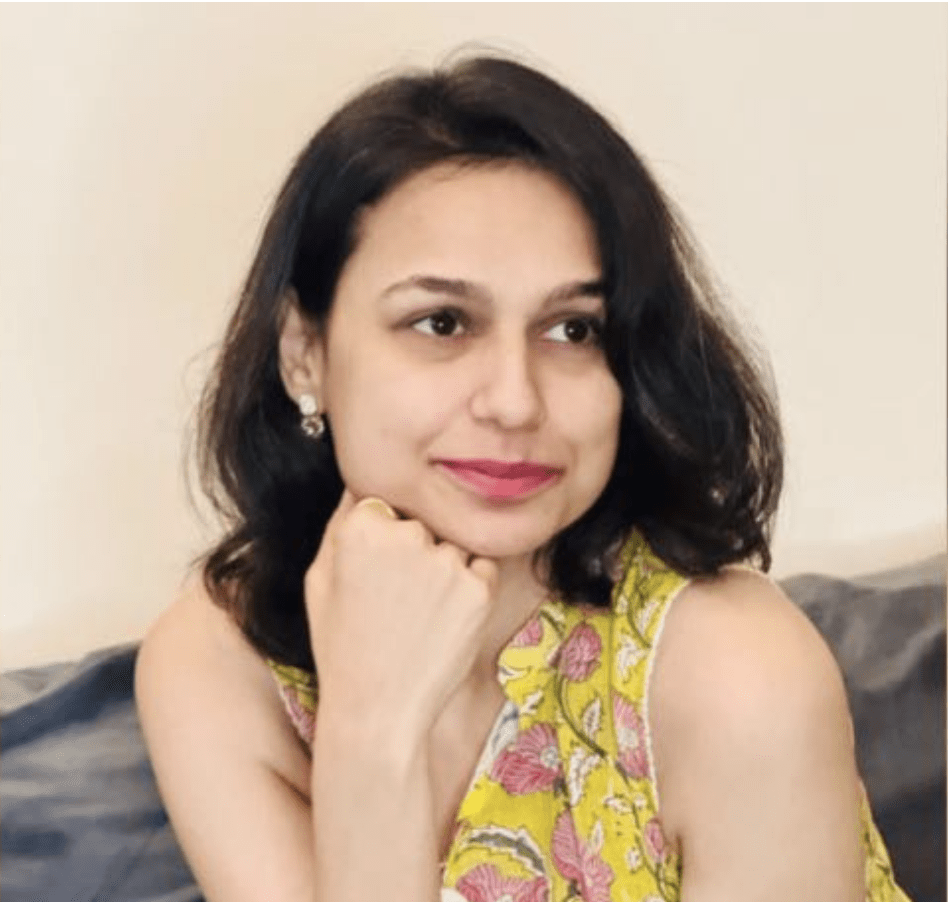
Shumaila Hussain Shahani is a human rights lawyer and specializes at the intersection of technology law and gender justice.
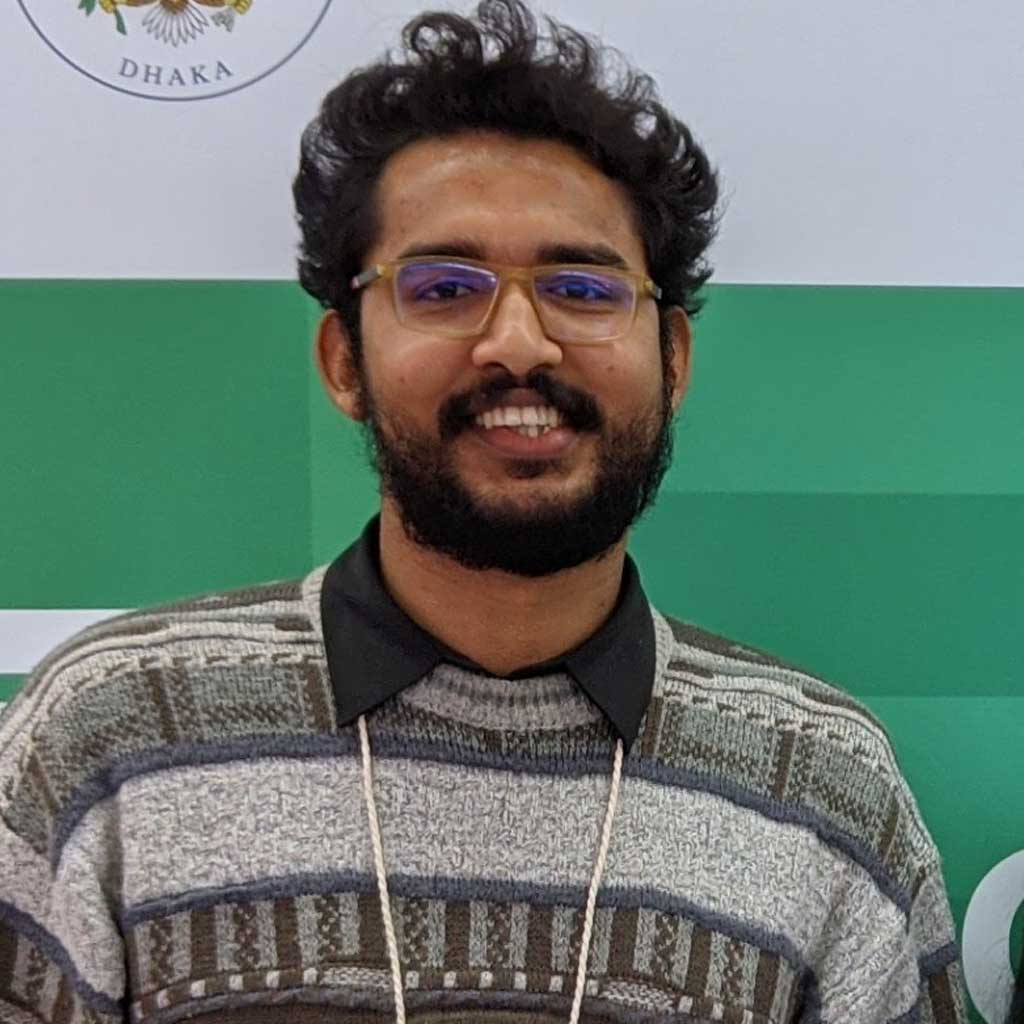
Sheikh Fahim Ahmed is a researcher. He has previously worked as a Fact Checker at Internews and contributed as a journalist at Bdnews24.com.
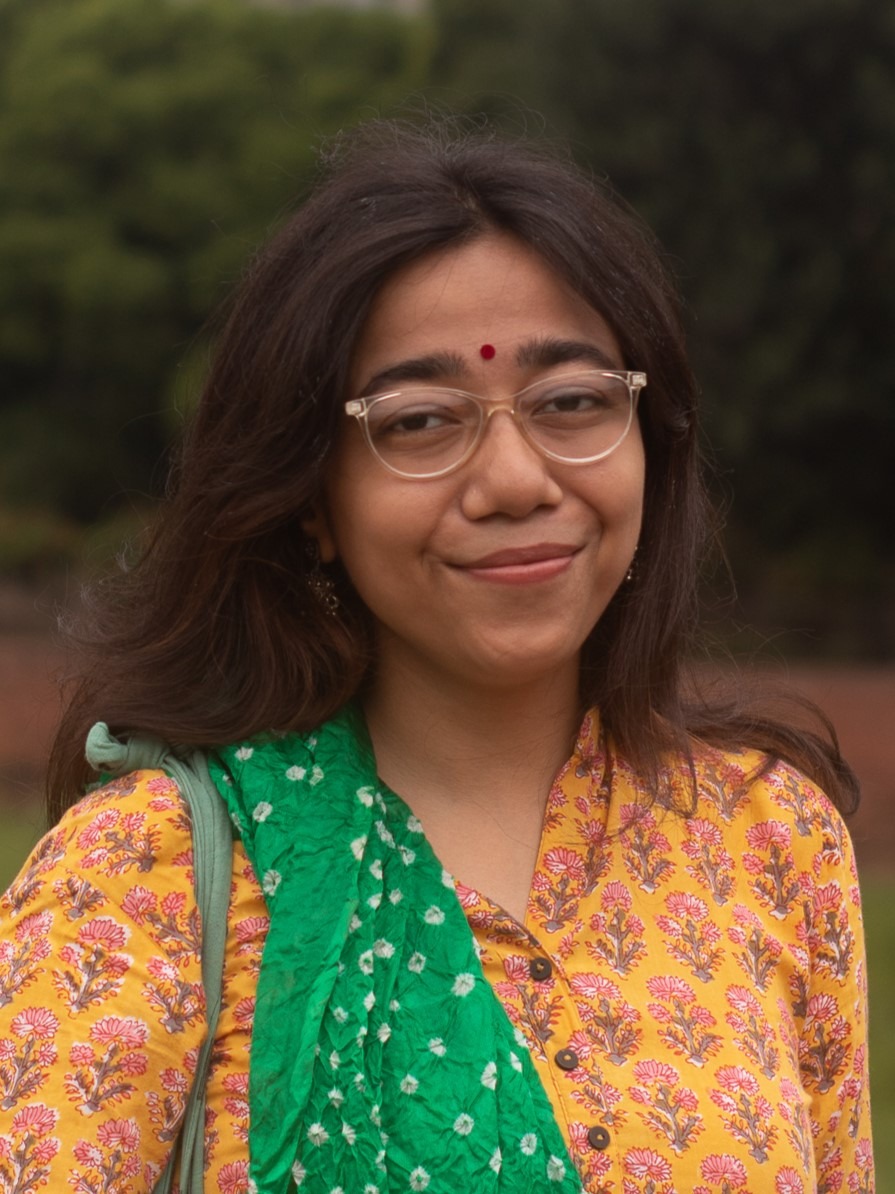
Afia Jahin leads communication at Tech Global Institute. She has previously worked as an editorial assistant with the op-ed section at The Daily Star in Bangladesh. Afia is a writer and content strategist with a primary interest in projects which help shed light on political crises and human rights concerns.
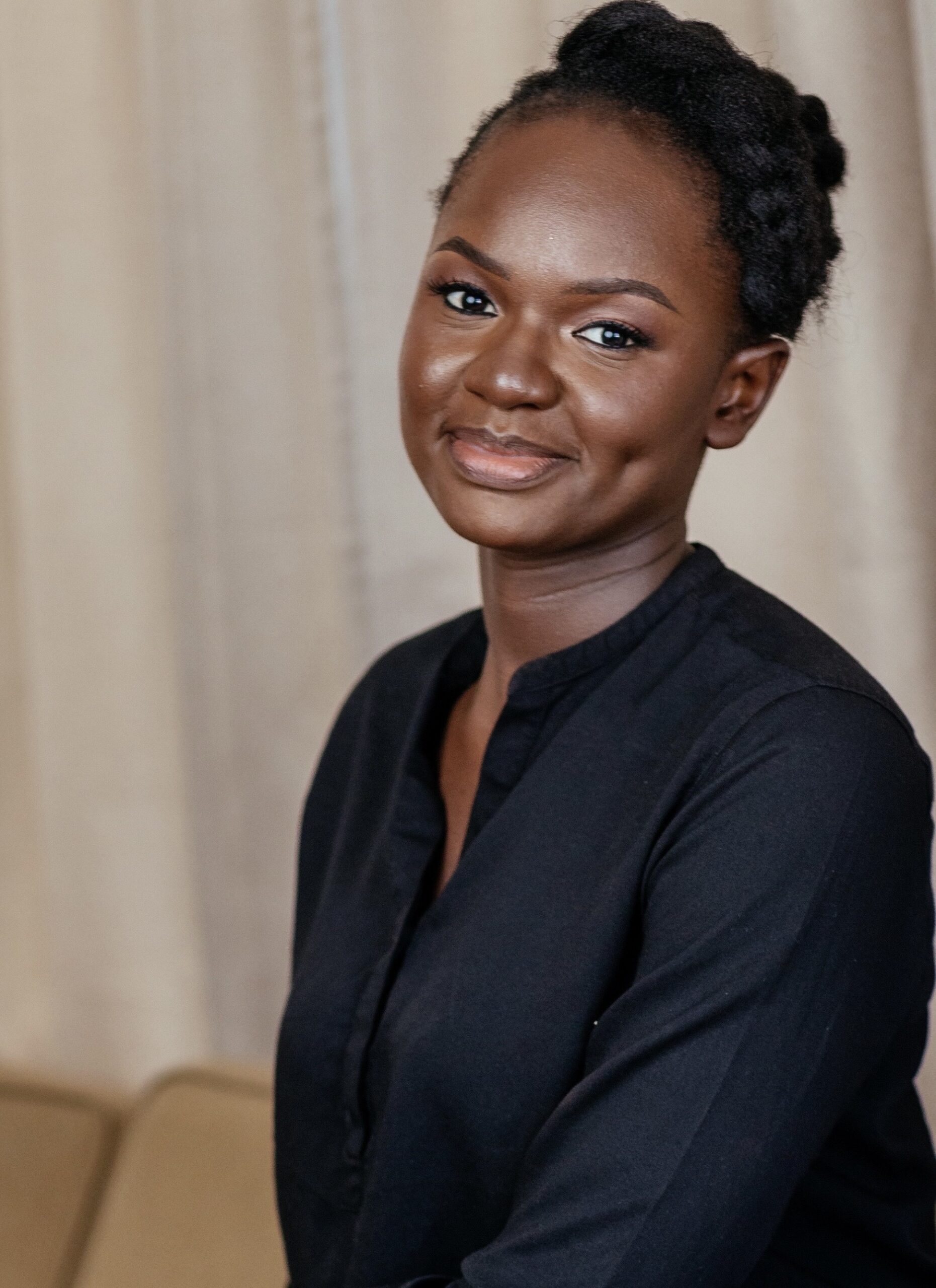
Abigail is a tech policy professional, and currently leads Trust and Safety policy at Wikimedia Foundation. She is responsible for creating and updating platform policies for Wikipedia and over 12 other related products and platforms. Abigail has a background in responsible AI and economic research and has worked for international organizations such as the World Bank. She holds a Master in Public Policy from the University of California, Berkeley.
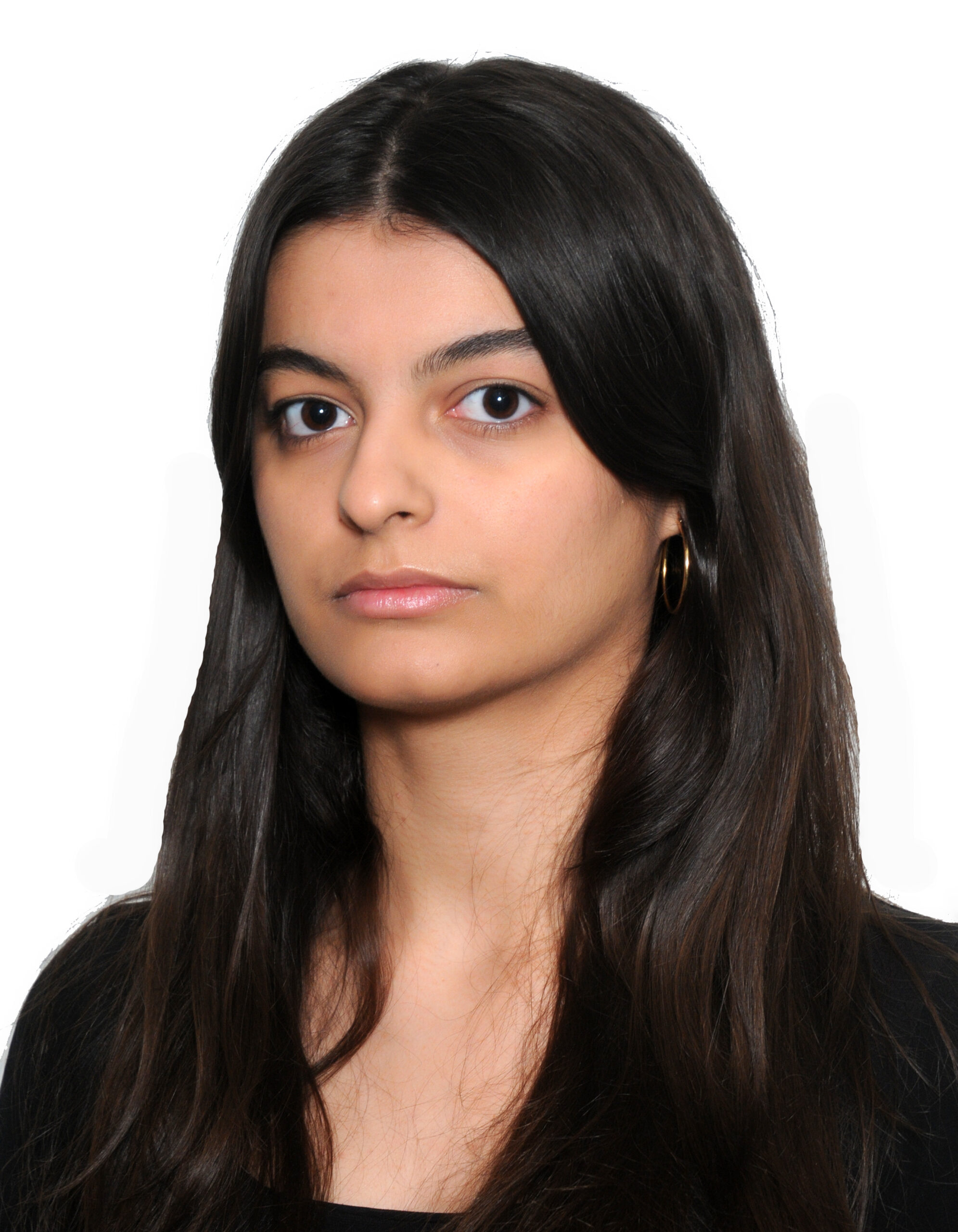
Jessica is a Master of Public Policy and Management candidate at the University of Melbourne, holding a Bachelor's degree in Economics from the Lebanese American University. With a keen interest in tech policy, she is dedicated to exploring how technology can be harnessed to promote equitable outcomes across society. She is passionate about shaping policies that ensure all individuals, regardless of background, have access to the opportunities and benefits that technological advancements can offer, while addressing potential disparities.
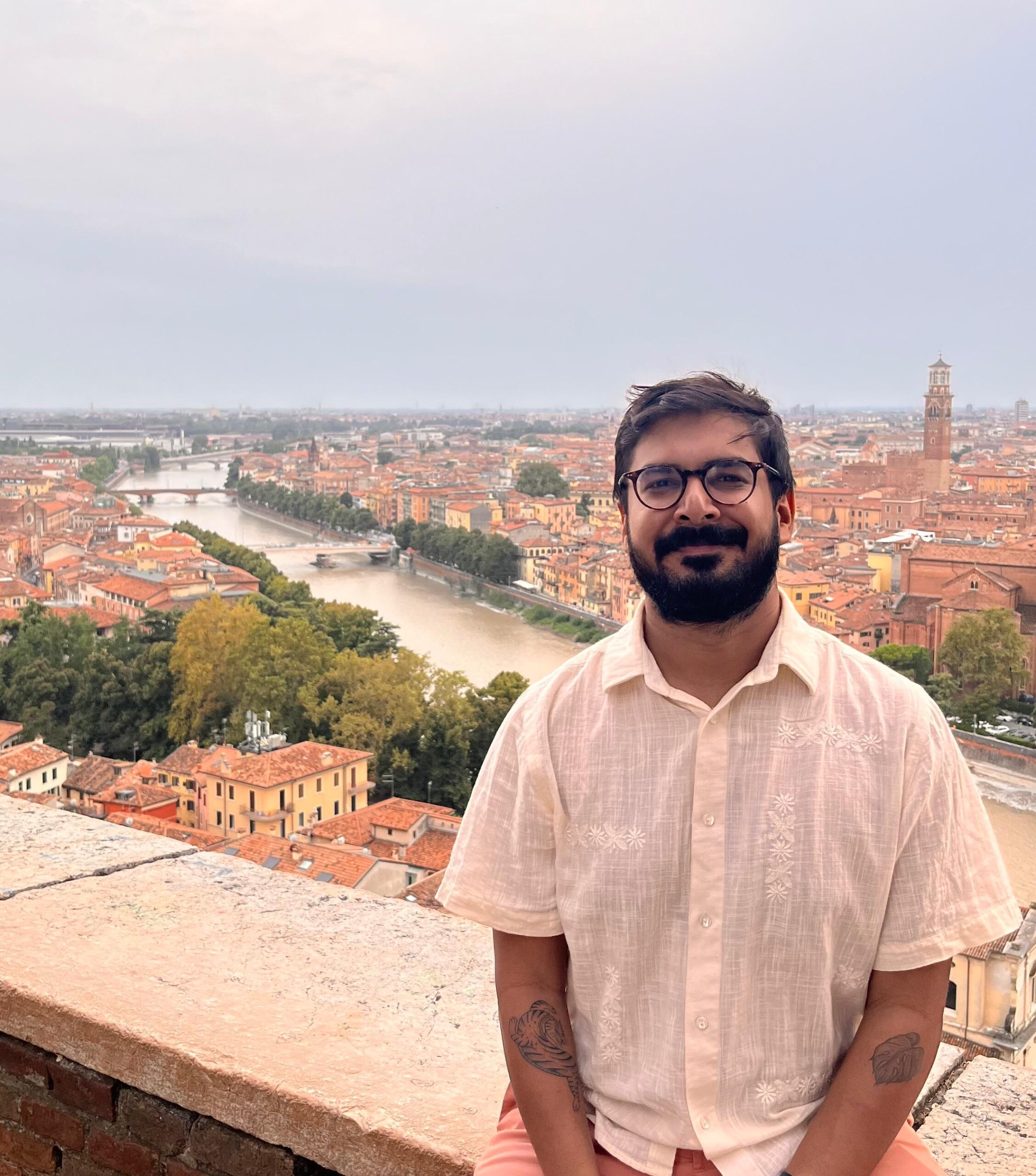
Shashank is a Delhi-based lawyer and tech-policy researcher working towards strengthening the voice of the Global Majority in global policy dialogues. He’s currently the Associate Director at the Centre for Communication Governance at National Law University in Delhi. Shashank is interested in studying how new technologies impact society, especially those who are vulnerable and historically marginalized. His work is targeted towards building policy solutions that benefit and restore the rights of invisibilized communities. His writing has covered subjects such as data governance, platform accountability, online free speech, and regulatory design. For the past two years, Shashank has been working on publishing a podcast on tech policy in India housed within CCG.

Diyi is a DPhil candidate in Information, Communication, and the Social Sciences at the Oxford Internet Institute, University of Oxford. Her research examines the development and governance of the ICT industry in Asia Pacific, with a current focus on algorithmic content moderation and platformized speech governance in South and Southeast Asia. Diyi is also a visiting researcher at the National University of Singapore (Fall 2023), an Open Research Fellow at the Weizenbaum Institute in Germany (Spring 2024), and a research fellow at the Centre for Strategic and International Studies in Jakarta Indonesia (Fall 2024). She earned her BA and MA in International Journalism and Communication in China prior to commencing her DPhil.
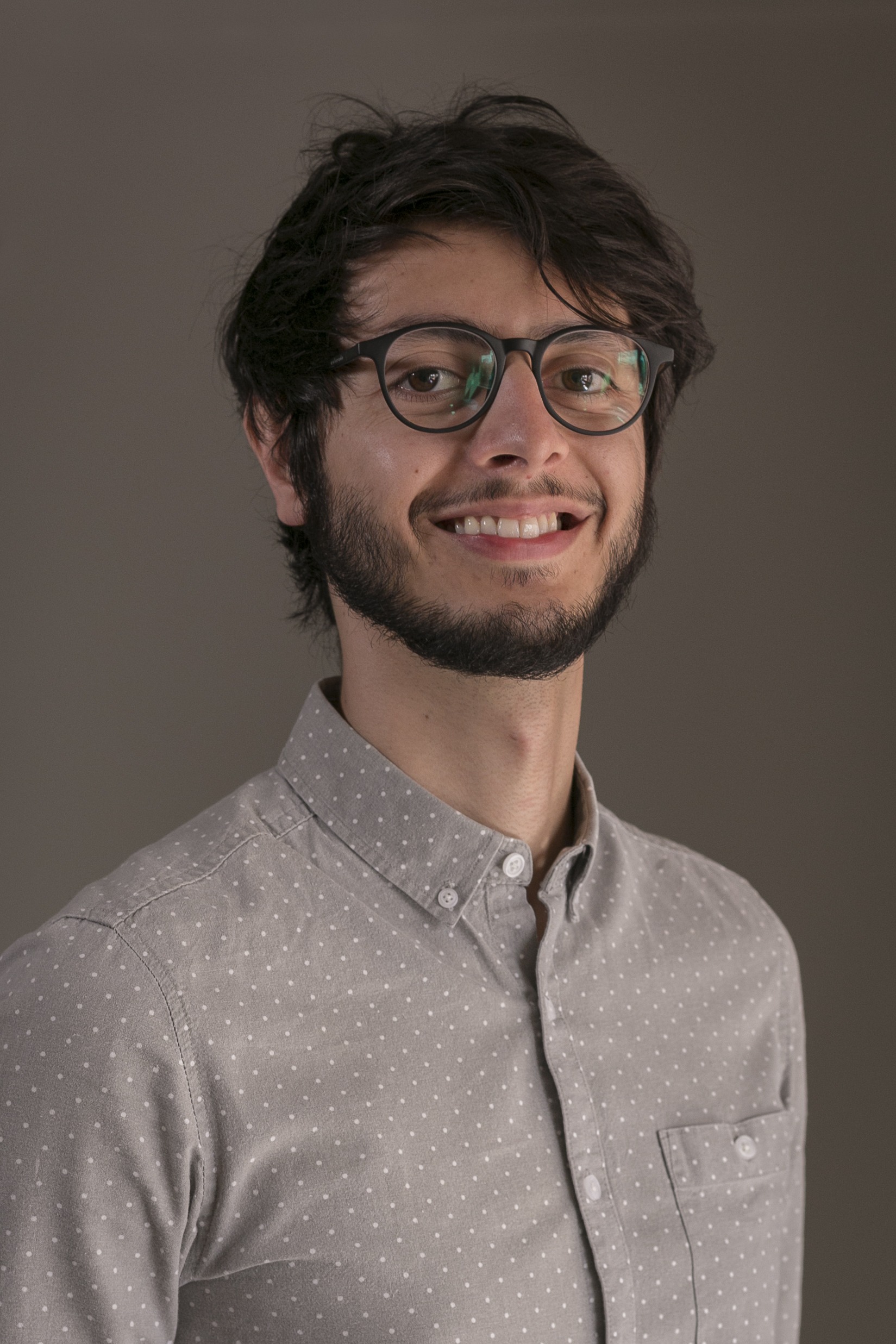
Lucas is a legal scholar specialized in technology, privacy, and international law, working as a postdoctoral researcher at Sciences Po Law School in Paris. He is also a data protection specialist at the Brazilian Data Protection Authority (ANPD). Lucas holds a PhD in Law from Université libre de Bruxelles. He is also a Professor of Law at UFJF and a founder of the Institute for Research on Internet and Society (IRIS). His research focuses on privacy and data protection, exceptions to intellectual property, policy discourses, and AI governance.
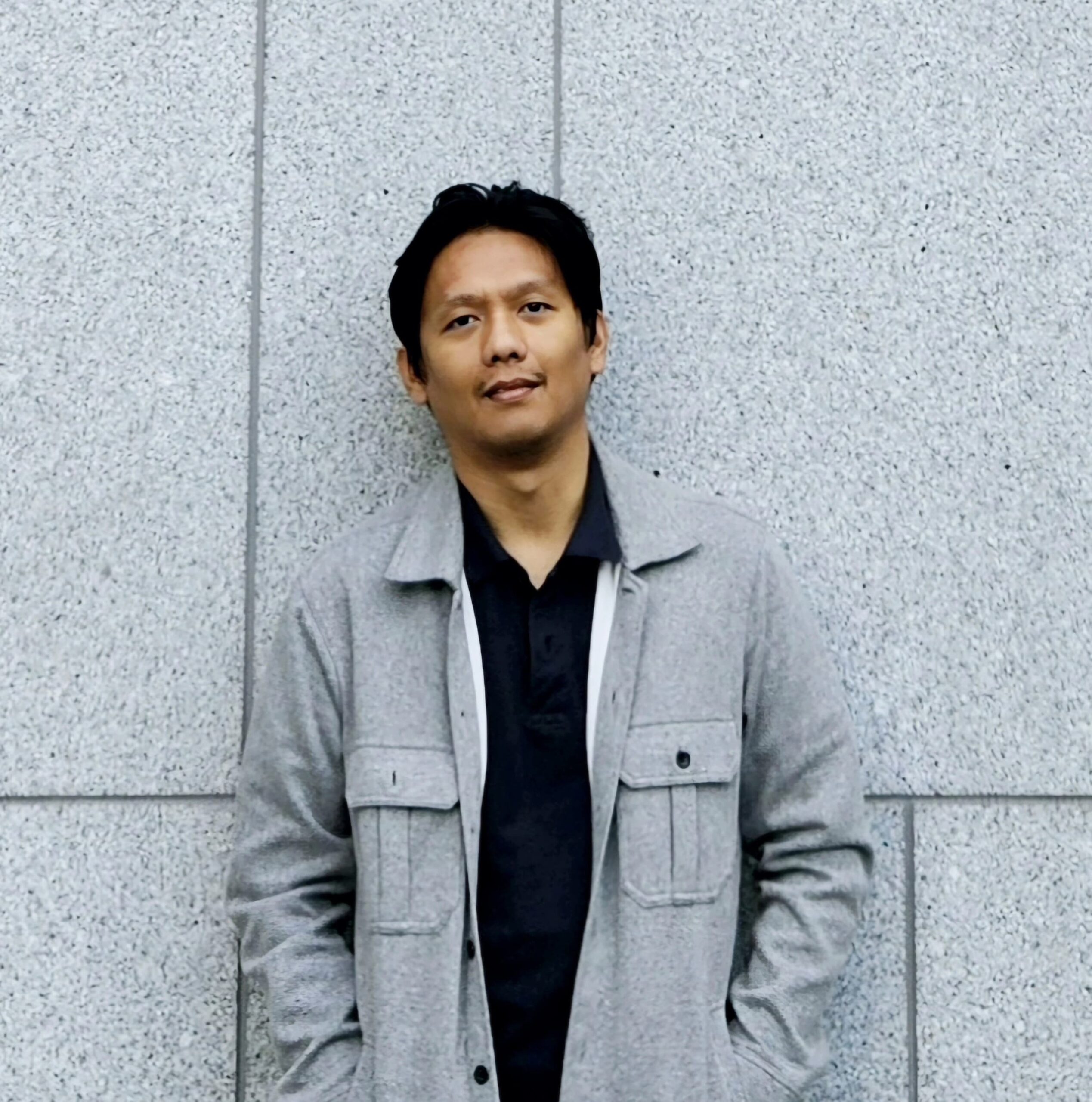
Azka Haria Fitra is a public policy analyst specializing in media, digital, and democracy issues. In Indonesia, he has worked with the government in developing strategic policy frameworks addressing digital privacy, press freedom, content regulation, and AI governance. His work focuses on designing policies that cultivate a healthy digital information ecosystem, safeguarding public rights, ensuring media sustainability, and holding platforms accountable. Azka holds a Master’s in Digital Policy from University College Dublin.
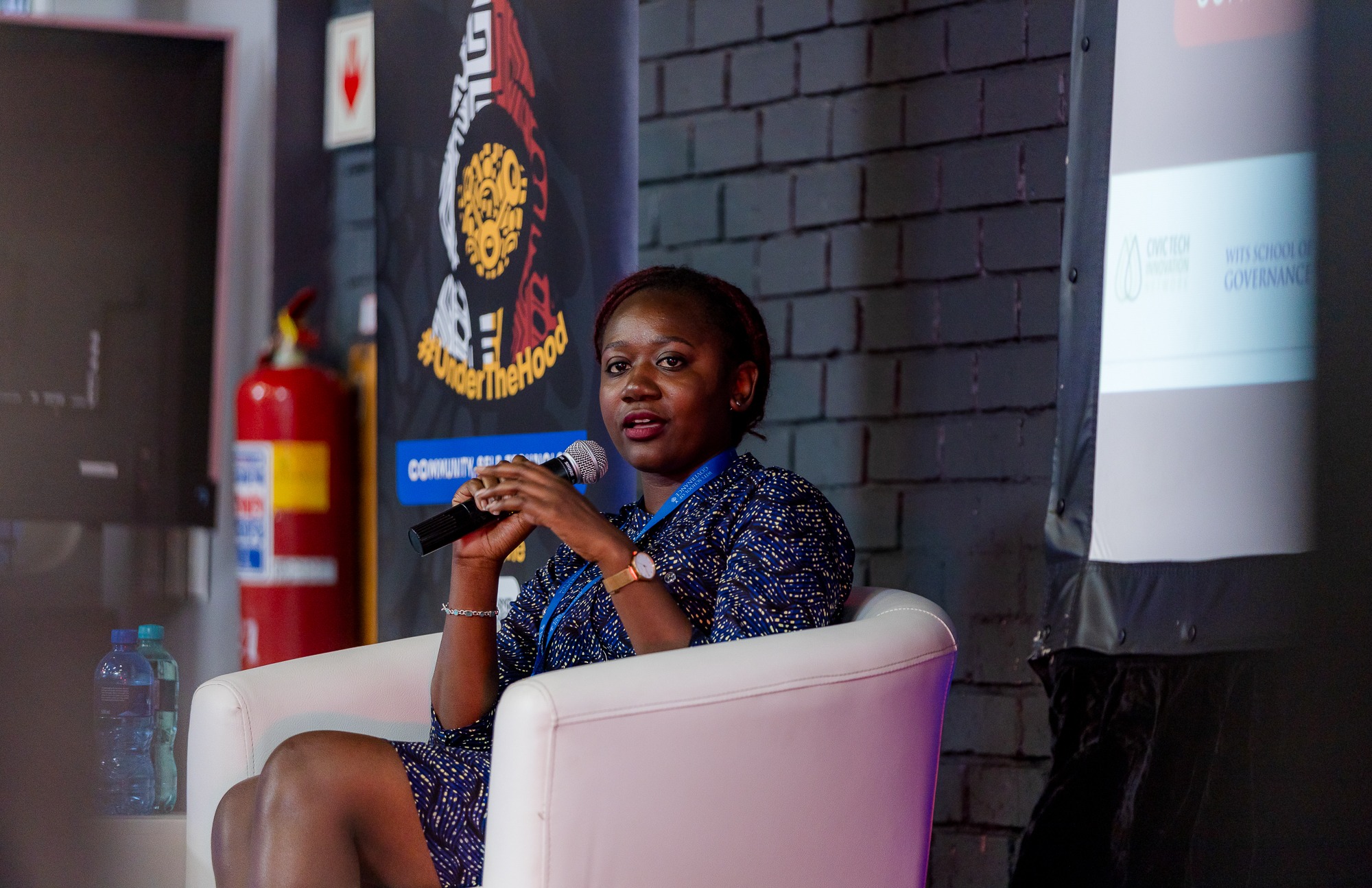
Angela is an Advocate of the High Court of Kenya and Digital Rights and Policy Programs Officer at Article19 in Eastern Africa. She works at the intersection of law, technology, and human rights with an extensive professional profile that extends to project management, research, and policy analysis.
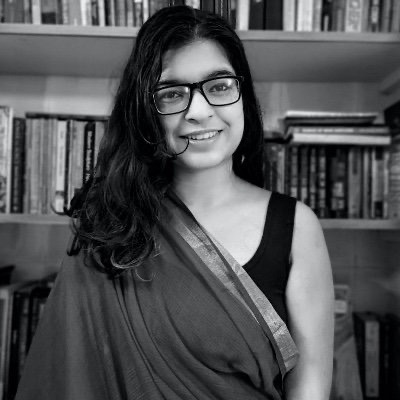
Anatara serves as a Senior Technology Policy Associate at Wadhwani AI, driving research and implementation support to establish a comprehensive AI ecosystem in India through strategic investments and interventions across the AI lifecycle. She is also a fellow of the ARTICLE19 Internet of Rights Fellowship, contributing to IEEE's initiatives on transparency and accountability in Large Language Models (LLMs). Previously, she worked with the Observer Research Foundation and CyberPeace Foundation, producing research on emerging technologies and policy response papers.
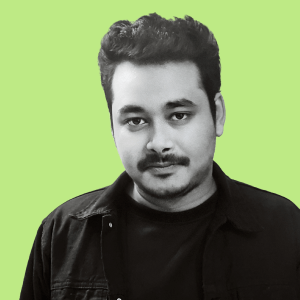
Sams Wahid Shahat is a dedicated researcher in the fields of media and information management and fact-checking. He has held roles at FactWatch, an IFCN-verified independent fact-checking institution, and Benchmarkpr, where he contributed as a communications officer. At Tech Global Institute, he focuses on projects that address contemporary information challenges in the Global South. His work combines elements of media analysis, fact-checking, and research methodology.
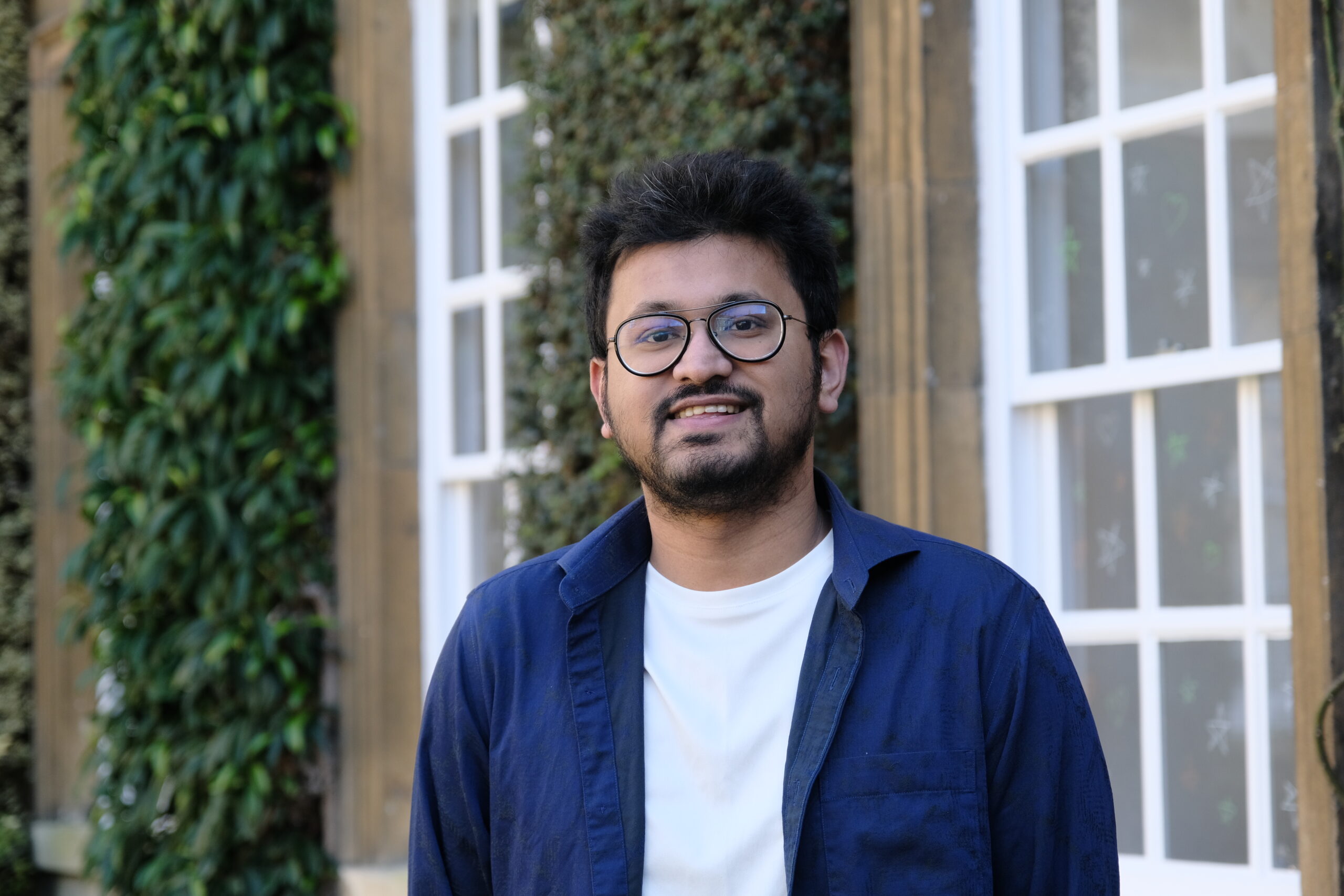
Abdullah Safir is an AI ethics and critical design researcher focused on building responsible, inclusive AI systems for Majority World/Global South contexts. He is a PhD candidate in Interdisciplinary AI Design at the University of Cambridge, affiliated with the Cambridge Collective Intelligence and Design (CamCID) Group and Critical Design Studio. Beyond his research, he serves on the early career committee at the Centre for Human Inspired AI (CHIA) and contributes to AI@Cam projects on ethically rooted AI for public value. Safir is a Gates Cambridge Scholar (2024), Trinity Hall research scholar (2023), and Commonwealth Scholar (2021). He completed his MPhil at the Leverhulme Centre for the Future of Intelligence (LCFI), University of Cambridge, and previously worked as a researcher there after earning his Master’s at the University of Warwick. He co-developed Bangladesh’s Digital Strategy Primer with BRAC University and the University of Oxford in 2021. His current work spans inclusive AI design, policy, and reducing AI’s colonial harms. More about his work is available here: https://www.abdullahsafir.net/
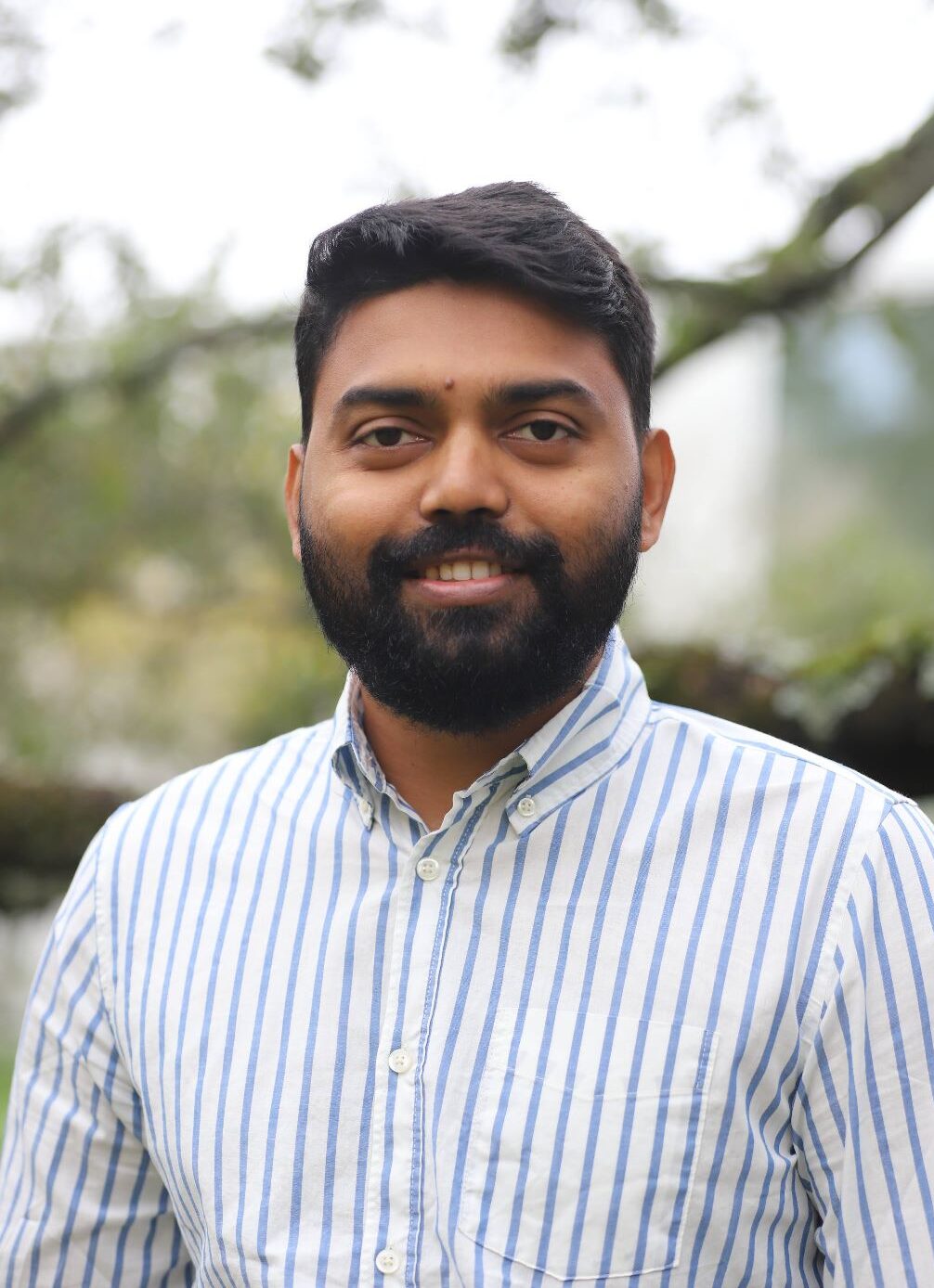
Sheikh Waheed Baksh is an experienced program and operation manager with a strong background in product integrity, and trust and safety. His research involves analyzing and implementing ethics measurement strategies in artificial intelligence, conducting evaluations of machine learning models, and designing end-to-end integrity review processes. He was most recently leading integrity ops at Meta, prior to which he spent time at Baker Hughes (previously GE) and Walmart Global e-Commerce. Waheed holds a Master of Development Practice degree from University of California, Berkeley and Bachelors in Engineering from Bangladesh University of Engineering & Technology.
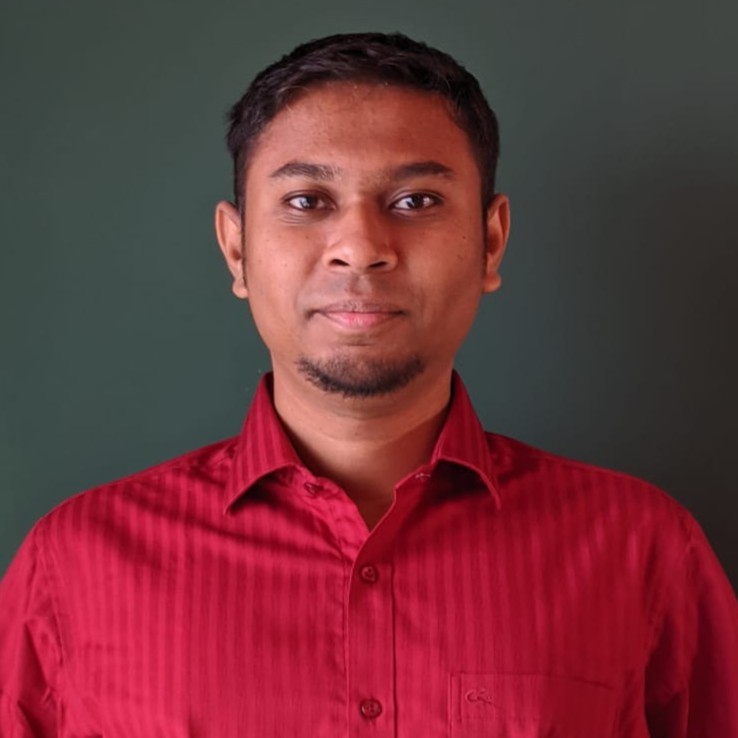
Saad Hammadi is an advisor at Tech Global Institute and a seasoned human rights advocate. He currently serves as a Policy Researcher at Project Ploughshares, focusing on space governance within international law frameworks. He also advises UN Special Rapporteur, Irene Khan, on freedom of opinion and expression. Previously, Saad worked as the South Asia Campaigner at Amnesty International, criticizing restrictive legislation globally. Notably, he independently won a legal battle against Bangladesh Police under the Right to Information Act, challenging weaponization of the now defunct Digital Security Act to target and harass critical voices. Saad's works and comments have been featured in prominent international media outlets, including The Guardian, Washington Post, Ottawa Citizen, Financial Times, The Globe and Mail, TIME, Foreign Policy, New York Times, DW, BBC, CNN, Al Jazeera and NPR. He holds a Master of Arts degree in Global Governance from the University of Waterloo.
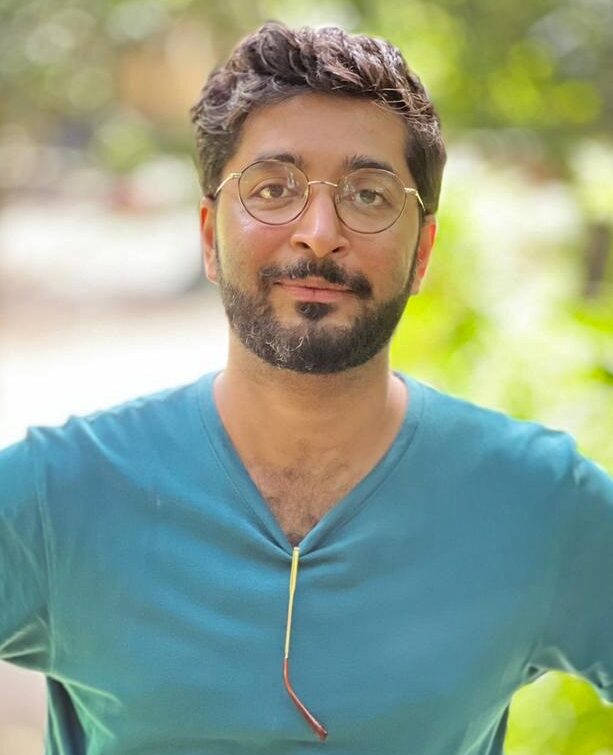
Saad Khan brings deep research experience at the intersection of LGBTQI politics and activism, and postcolonial modernity in the Global South. Previously, he was at BRAC James P. Grant School of Public Health where he worked on research and advocacy on sexual and reproductive health and privacy rights. He collaborates and builds coalitions with nonprofit, activist and human rights groups in South Asia, U.S. and Europe to develop advocacy strategies on legislations and policy developments and support research on diverse gender and sexual identities and expressions. His work has received awards the U.S. Department of State, Swedish Institute and the Social Science Research Council. Saad is a PhD candidate at University of Washington.
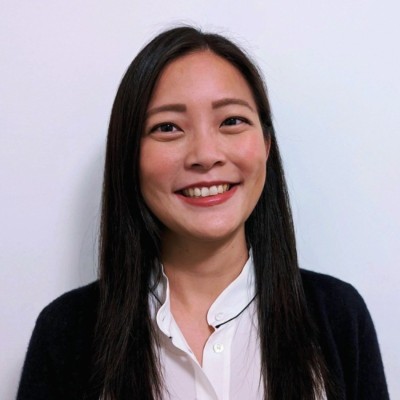
Diane Chang is a public interest technologist with a decade of experience building products that connect people to interesting and informative information. She is currently an entrepreneur-in-residence at the Brown Institute for Media Innovation at the Columbia University Graduate School of Journalism. From 2021 to 2023, she led a number of trust and safety product development efforts at Meta, including empowering global users of Facebook and Instagram to safely engage on elections and civic matters, and developing capabilities to forecast risks in societal crises. She came to tech after a first career as a journalist, then received her Master's in Public Policy at Harvard Kennedy School, where she studied the internet's impact on media, democracy, and economic development. She is originally from Taiwan.
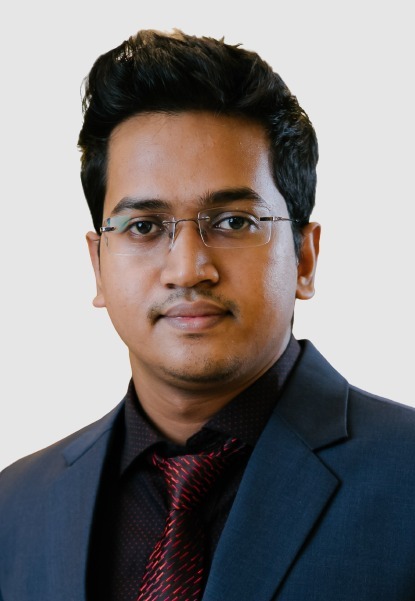
Apon Das is an experienced media and information researcher and fact-checker. His research interests include media literacy, fact-checking methodology, mis/disinformation and media representation. He has written books on the introducing fact-checking as a media literacy intervention for majority world communities. Apon received his BSS in Media Studies and Journalism from the University of Liberal Arts Bangladesh (ULAB), and is currently pursuing M.Sc in Anthropology at the University of Delhi.
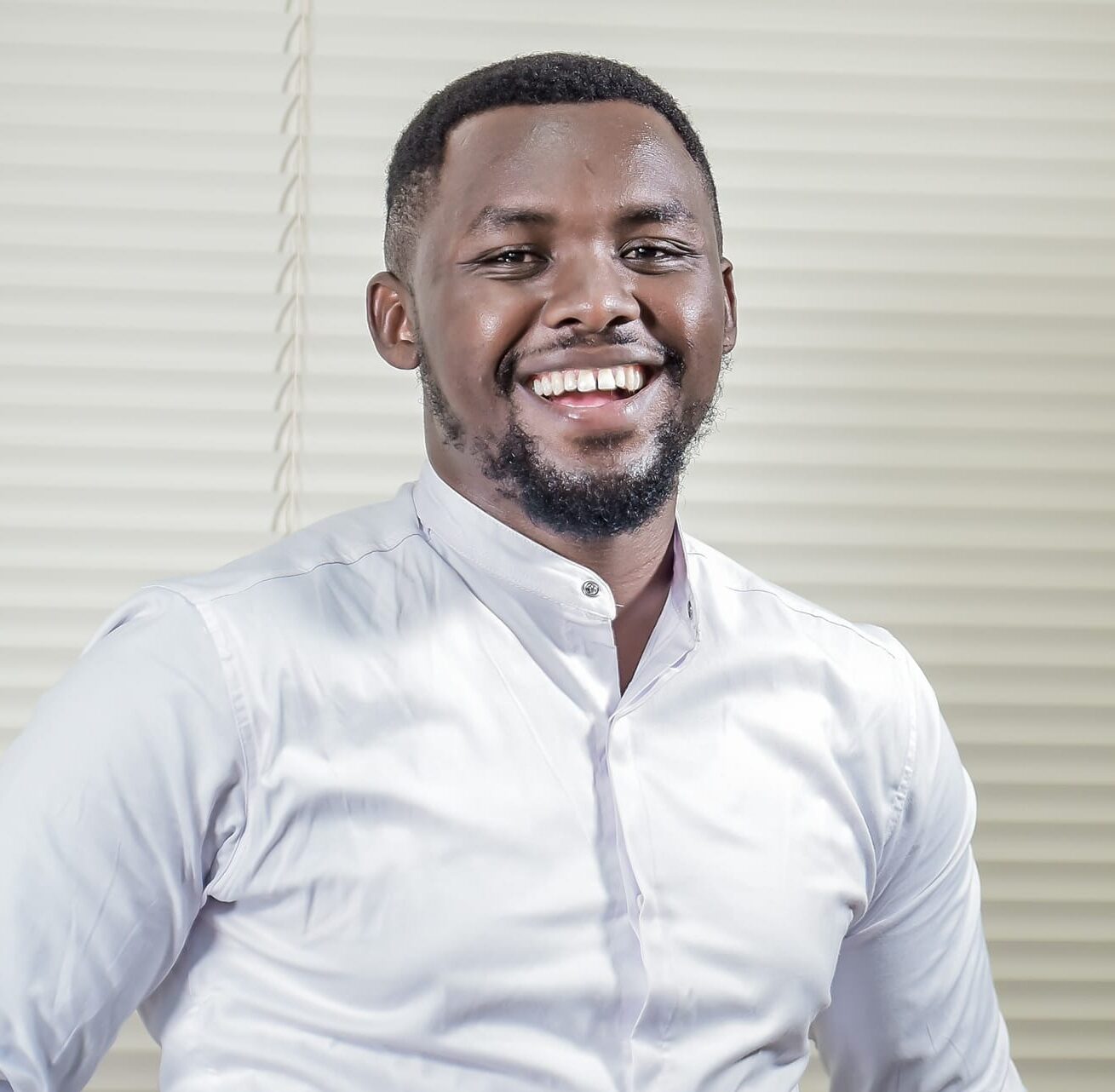
Muthuri is a lawyer and human rights advocate, most recently leading ARTICLE 19’s civic space and digital programs in East Africa. His expertise lies in civic participation and digital rights policy, steering advocacy, research and capacity building efforts for online and offline communities. Previously, as Legal Aid Manager at Justice Defenders (formerly African Prison Project) in Kenya, Gambia and Uganda, he established 12 prison-based legal aid clinics and trained over 150 officers and inmates as paralegals. He has received awards from Amnesty International, and was nominated for 35 Under 35 Award by Kenya Youth Agenda for his work on human rights.
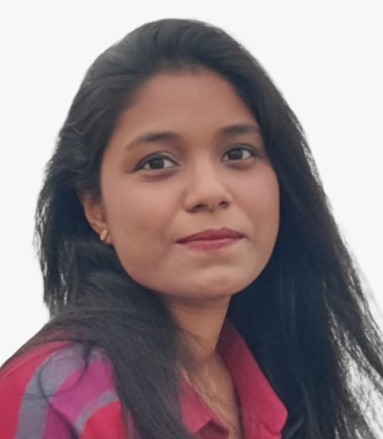
Manisha brings deep experience at the intersection of humanitarian law and gender. She serves as a focal point for multiple civil society coalitions working on the rights of underserved gender-diverse communities in Bangladesh, leading efforts on technology’s impact on identity and civic participation. Previously, she served at the Rohingya emergency operation as a case manager, focusing on child safety and digital access among refugee groups. Manisha holds Bachelor and Master’s degree in law from University of Chittagong. She presented at RightsCon 2023 on the Internet Diet of Rohingya refugees.
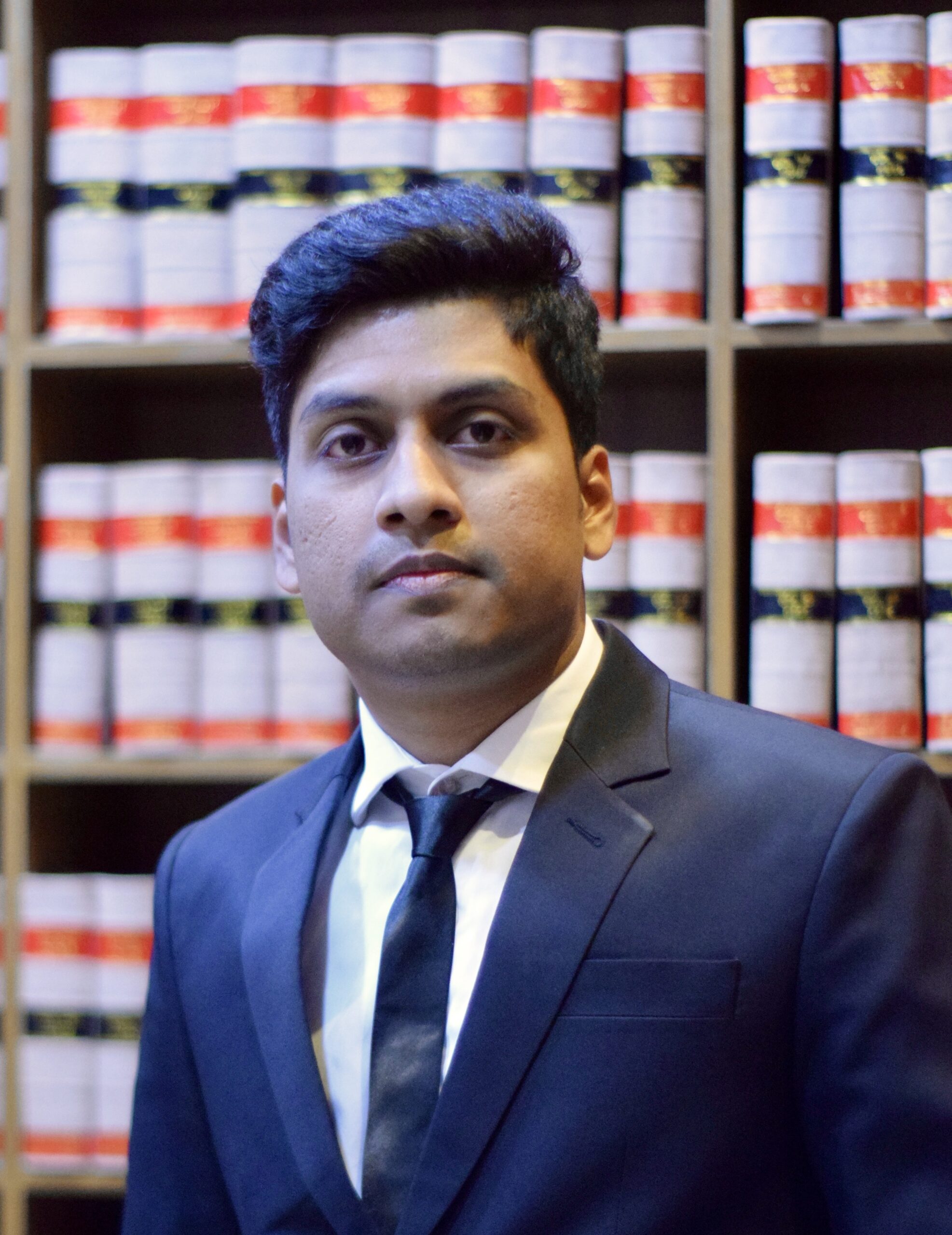
Fahad is a lawyer and researcher, currently working at the intersection of human rights, governance and intellectual property law. He is actively involved with numerous cases on technology-facilitated gender-based violence, working closely with law enforcement and rights organizations. Previously, he spent time at multiple law firms, leading on various socio-legal cases. He holds a MBA from North South University and the LL.M. in International Law from East West University in Bangladesh.
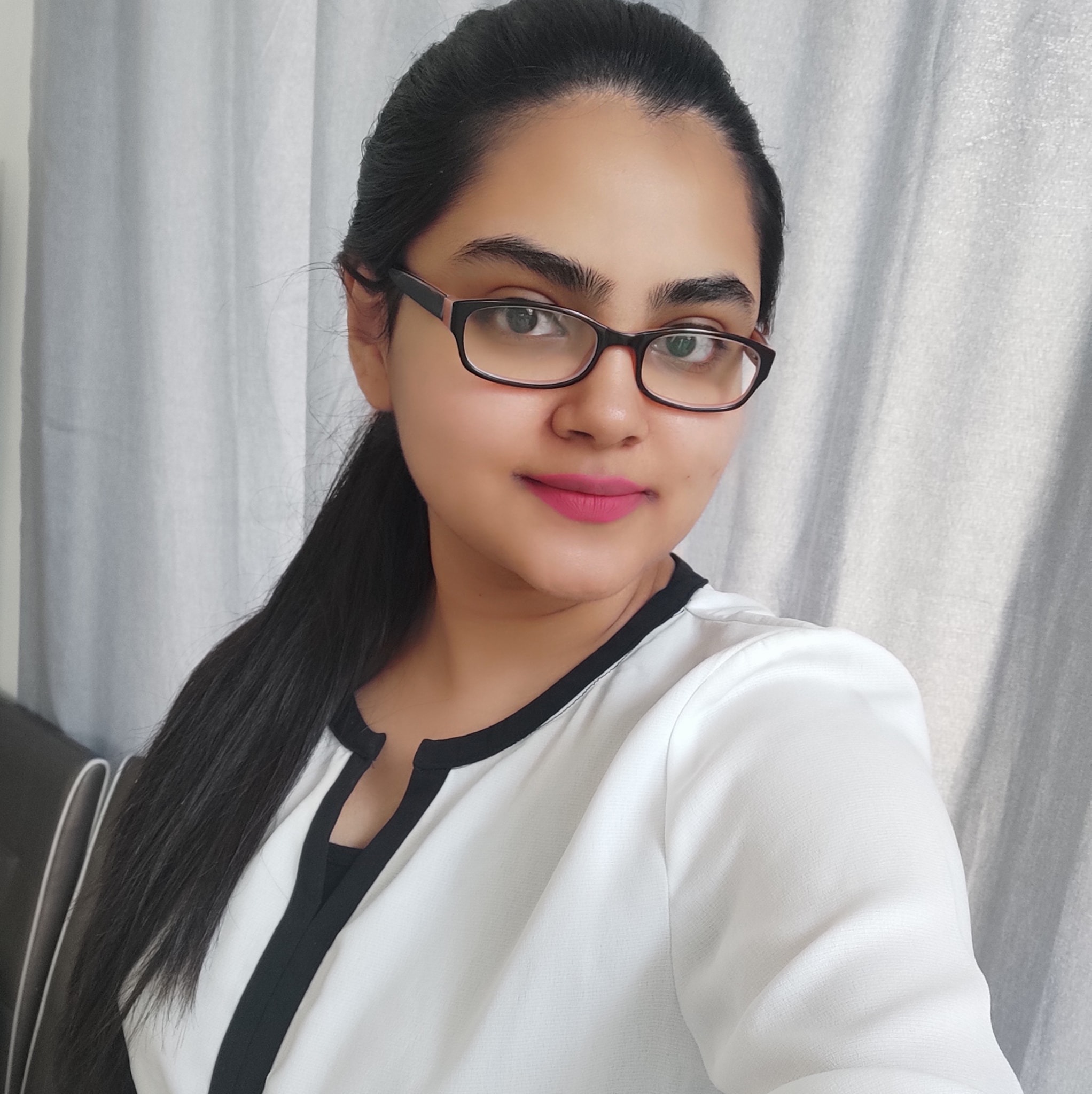
Rushmila Bintay Rafique is a research associate at Tech Global Institute and an adjunct lecturer at the University of Liberal Arts Bangladesh. She holds a PhD in law, coupled with extensive teaching and research experience in public international law. She has previously collaborated with a former Malaysian Court of Appeal Judge, UNICEF Malaysia, CENTHRA, and USIM.
